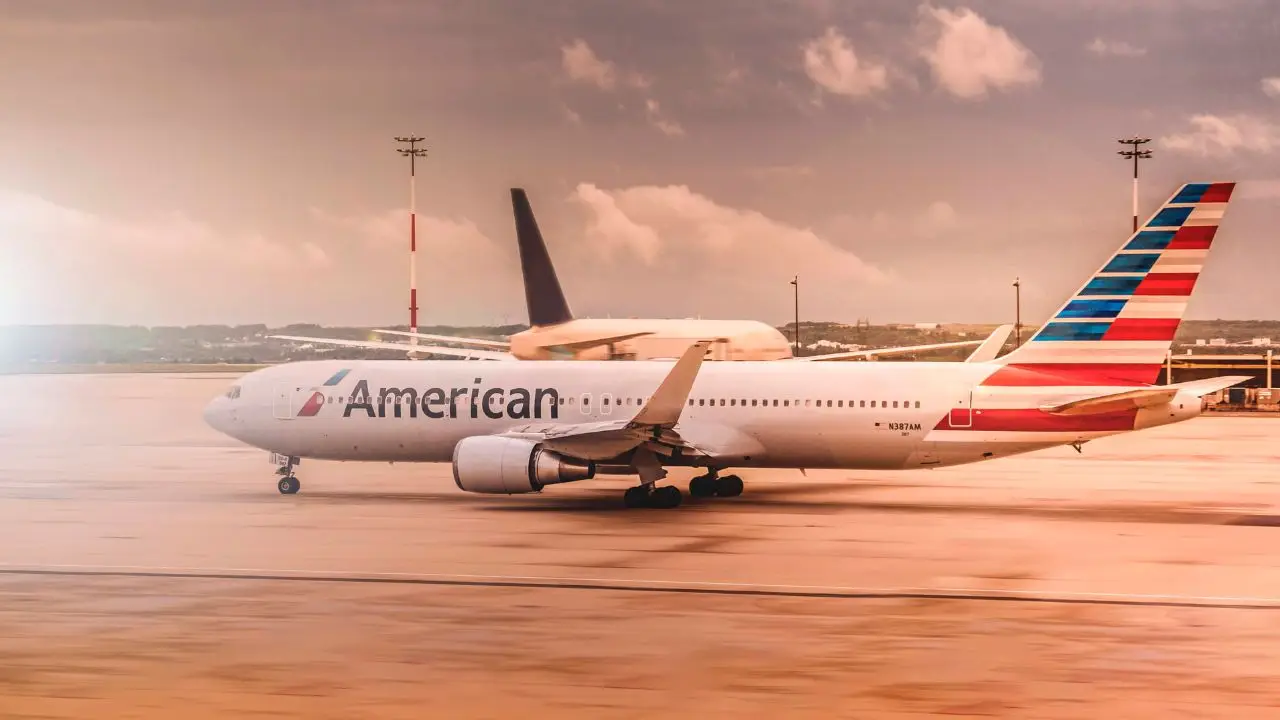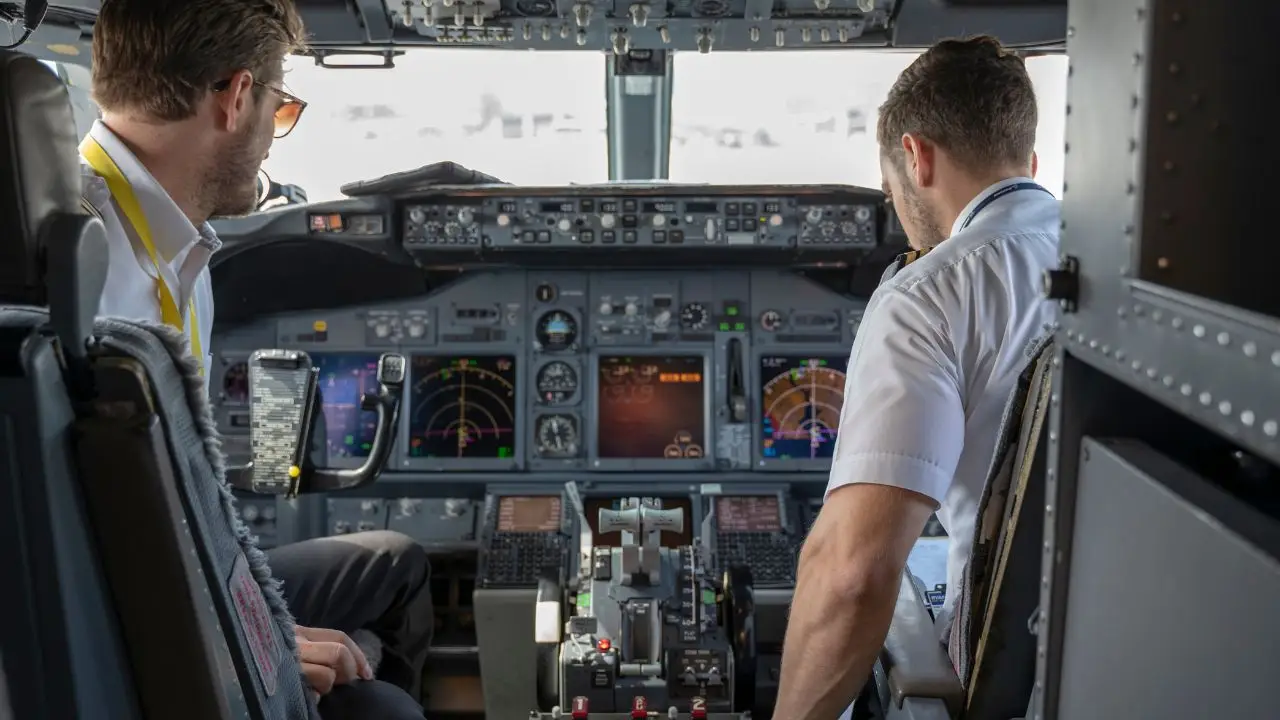Becoming a pilot is a dream career for many aviation enthusiasts. If you’re considering a career as a pilot at American Airlines, one important aspect to consider is the salary. In this article, we will explore the factors that influence American Airlines pilot salaries, the salary range for entry-level and experienced pilots, the additional financial benefits they receive, advancement opportunities, and the job outlook in the airline industry.
Factors Affecting American Airlines Pilot Salaries
Several factors play a crucial role in determining the salaries of American Airlines pilots. These factors include experience level, seniority, aircraft type, rank, and the number of flight hours. Additionally, certain factors like geographic location and industry demand may also influence pilot salaries.
Salary Range for Entry-Level Pilots
Entry-level pilots at American Airlines receive a competitive starting salary. While the exact figures may vary, depending on factors like previous experience and qualifications, entry-level pilot salaries generally fall within a certain range.
On average, entry-level pilots at American Airlines can expect to earn between $50,000 and $80,000 per year. However, it’s important to note that these figures are approximate and subject to change.
Salary Range for Experienced Pilots
As pilots gain more experience and progress in their careers, their earning potential increases. Experienced pilots at American Airlines, who have accumulated a significant number of flight hours and achieved higher ranks, can expect higher salaries.
On average, experienced pilots at American Airlines earn between $100,000 and $350,000 per year, depending on various factors such as rank, aircraft type, and seniority. Some senior pilots, particularly those in leadership positions, can earn even higher salaries.
Additional Financial Benefits
In addition to their base salary, American Airlines pilots enjoy various financial benefits, including retirement plans, health insurance, and performance-based bonuses. The retirement plans provided by the airline, such as 401(k) plans, help pilots build a secure financial future.
Health insurance coverage ensures pilots and their families have access to comprehensive healthcare benefits. Performance-based bonuses, tied to factors such as flight safety, on-time performance, and customer satisfaction, provide additional incentives and rewards for pilots.
Factors Influencing Salaries in the Airline Industry
Salaries in the airline industry are influenced by several factors beyond experience and seniority. Factors such as the size and financial performance of the airline, market demand, and competition among airlines can impact pilot salaries.
Additionally, factors like the type of aircraft flown, international versus domestic routes, and the impact of industry events (such as economic downturns or pandemics) can affect pilot compensation.
Advancement Opportunities and Career Growth
American Airlines provides various advancement opportunities for pilots who wish to progress in their careers. These opportunities include promotion to higher ranks, such as first officer to captain, as well as leadership and management positions within the company.
Advancement can lead to increased responsibilities and higher salaries. Additionally, pilots can also pursue specialized training to become instructors, examiners, or mentors, which opens avenues for career growth and increased earning potential.
Job Outlook for Pilots
The job outlook for pilots is generally positive, with strong demand for qualified aviators in the coming years. While the aviation industry may experience temporary fluctuations due to external factors, the long-term prospects for pilots remain favorable.
As air travel continues to grow globally, the need for pilots will persist. However, it’s worth noting that job opportunities and salary prospects may vary based on factors such as economic conditions, airline expansion plans, and advancements in technology.
Industry Trends and Emerging Roles
The aviation industry is continuously evolving, with new trends and emerging roles. Technological advancements, such as the rise of unmanned aircraft systems (UAS) and drone operations, create opportunities for pilots to explore new career paths.
Pilots who acquire the necessary training and certifications in these emerging areas may find themselves in high demand, potentially leading to increased earning potential.
Lifestyle Considerations
While salary is an important consideration, aspiring pilots must also be aware of the lifestyle that comes with the profession. Pilots often have irregular working hours, including weekends, holidays, and overnight flights.
Additionally, pilots may experience time away from home due to layovers and long-haul flights. While these aspects can be challenging, many pilots find the unique lifestyle and the thrill of flying immensely rewarding.
Conclusion
American Airlines pilot salaries are influenced by factors such as experience, seniority, aircraft type, and industry demand. Entry-level pilots can expect a starting salary between $50,000 and $80,000 per year, with the potential to earn higher salaries as they gain experience. Experienced pilots, depending on rank and aircraft type, can earn between $100,000 and $350,000 per year or more.
Additional financial benefits, advancement opportunities, and a positive job outlook make the profession attractive for aviation enthusiasts. However, it’s crucial to consider the lifestyle aspects associated with this career path.
FAQs (Frequently Asked Questions)
1. Can pilot salaries vary based on the type of aircraft they fly?
Yes, the type of aircraft can impact pilot salaries. Pilots who fly larger, more complex aircraft or specialized aircraft, such as long-haul international flights or cargo planes, may receive higher salaries compared to pilots flying smaller regional aircraft.
2. Are there opportunities for pilots to earn extra income through overtime or additional flights?
Yes, pilots have the potential to earn additional income through overtime or by taking on extra flights. Airlines may offer overtime pay for work beyond the standard scheduled hours. Additionally, pilots can sometimes opt to fly additional trips or cover for other pilots, which can result in increased earnings through higher flight hours.
3. Do American Airlines pilots receive travel benefits?
Yes, American Airlines pilots enjoy travel benefits as part of their compensation package. These travel benefits often include discounted or free air travel for themselves, their families, and sometimes even friends. This is a popular perk among pilots, as it allows them to explore different destinations and enjoy travel experiences at a reduced cost.
4. Are there any differences in pilot salaries between regional airlines and major airlines like American Airlines?
Yes, there can be differences in pilot salaries between regional airlines and major airlines. Regional airlines generally offer lower salaries compared to major airlines. However, gaining experience and building flight hours at a regional airline can often serve as a stepping stone to higher-paying positions at major airlines like American Airlines.
5. How do pilot salaries compare to other professions in the aviation industry?
Pilot salaries tend to be higher compared to many other professions in the aviation industry. While salaries can vary depending on factors like experience and airline, pilots generally earn higher incomes compared to professions such as flight attendants, aircraft mechanics, or air traffic controllers.
Disclaimer: The information provided in this article is based on research and available data at the time of writing. Salary ranges and specific details may vary and are subject to change. It is important for individuals interested in pursuing a career as a pilot to conduct thorough research and consult with relevant industry sources for the most up-to-date and accurate information.




